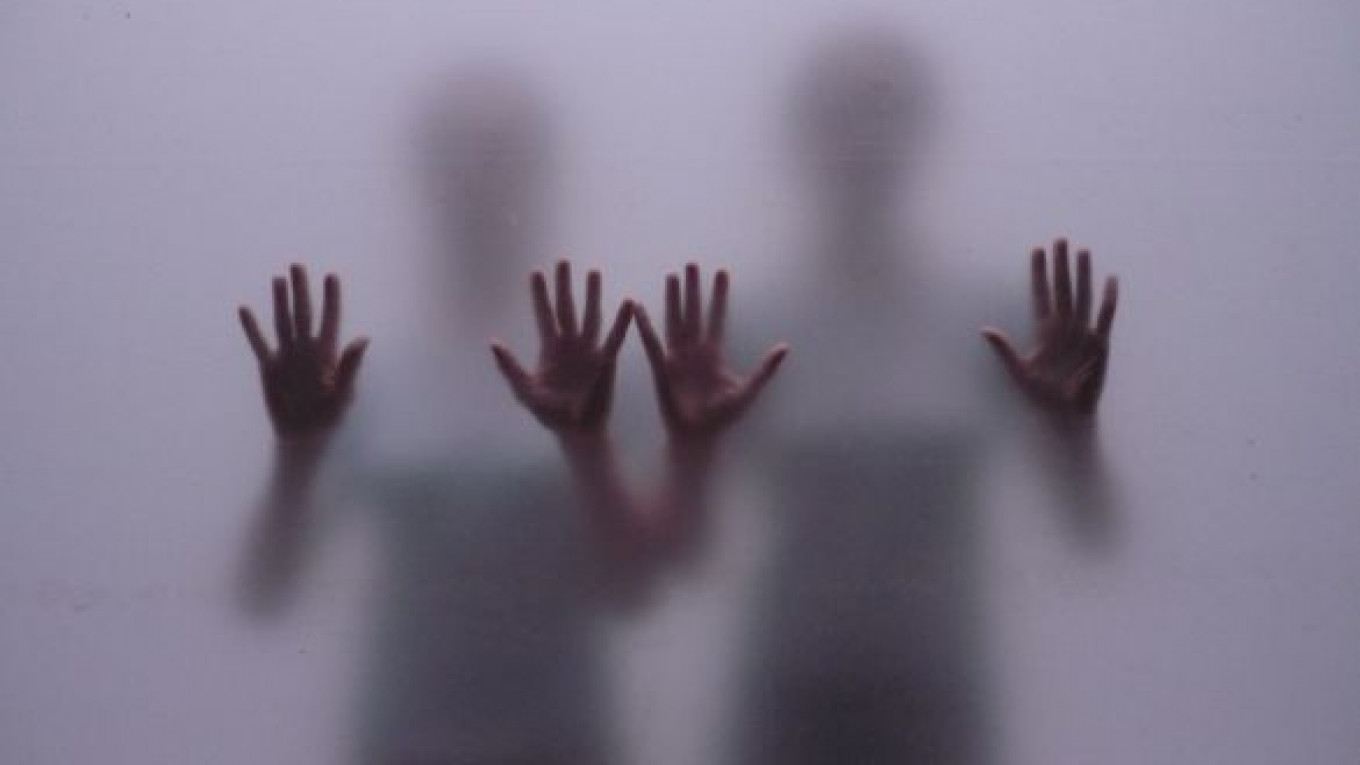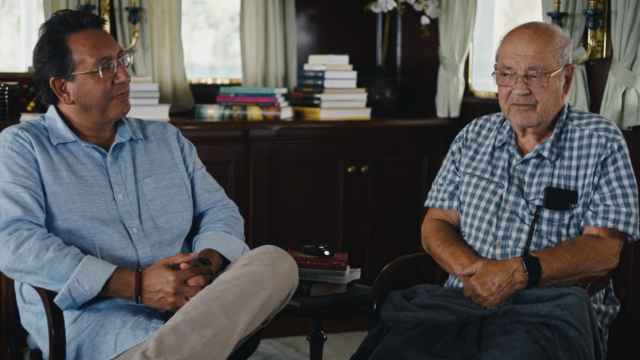Moscow’s Center for Contemporary Dance and Performance, TsEKh, kicked off its annual Festival of Theater Dance this weekend. Once again, Moscow audiences are being treated to a weeklong kaleidoscope of some of the best contemporary dance, theater and performance around. In a city dominated by the Bolshoi in particular and ballet in general, the festival, which runs through Dec. 11, offers a rare opportunity to see a more experimental side of dance.
Now in its 11th year, the festival introduced a new concept to the program — 2+2, or two countries, two cities. Instead of focusing exclusively on Russian companies, as Moscow-based TsEKh has traditionally done, this year the festival is showcasing dance from both Russia and Italy and will stage performances in Moscow and Kostroma, a city situated on the Volga River about 400 kilometers north of Moscow.
This is a bold move for the festival. Attracting audiences to contemporary dance can be hard enough in big cities such as Moscow and St. Petersburg, but drawing a crowd in a town of just 270,000 is an ambitious task. But that’s exactly what TsEKh plans to do by taking the festival on the road from Dec. 4 to 8 before returning to Moscow for a final few days of performances.
Fittingly, given its new 2+2 concept, the festival opened with “Punto di Fuga,” a co-production between the Italian company Zerogrammi and Russia’s Kostroma-based Dialogue Dance. This is a humorous dance of minimalist movement in which four men struggle for power on a stage set like a board game. Having premiered this summer in Turin, the work is an excellent example of the success that comes from cross-
cultural collaboration and was a great introduction to the festival.
Inviting foreign companies to perform began last year, and Italy was chosen this year as part of the Russian-Italian year of culture.
However, as Yelena Tupyseva, artistic director for the festival, makes clear, the decision to become international was not due to a lack of Russian contemporary dance companies. “I cannot say it’s a marginal art in Russia,” Tupyseva said on the subject of contemporary dance, “after all, we’ve been putting on a Russia-only festival for nearly 10 years.”
As she points out, while it’s true that the hegemony of ballet is alive and well in this country, a number of nonballet dance troupes have sprung up over the last two decades. One such company, which is featured on the program and is always a hit, is the highly regarded Provincial Dances from Yekaterinburg. They will perform two works: “The Wedding,” a restaging of Stravinsky’s 1923 ballet that won the company a Golden Mask award in 2000, as well as “Sepia,” a work created last year as part of the American Dance Festival.
Another Russian crowd-pleaser was Liquid Theater, a company jointly based out of Moscow, St. Petersburg and Chelyabinsk. Known for their site-specific performances, they presented “Subito Forte,” a piece that includes live music and lots of sand.
In addition to Russians and Italians, this year’s festival also includes a program of avant-garde dance from Poland. Four performances by young choreographers representing New Polish Dance, including the Harakiri Farmers, represented a rare chance to see Polish dancers in Russia. As Joanna Lesnierowska, artistic curator of the Polish component, puts it: “We, all post-Communist countries, tend to look West, and we completely ignore what’s going on next door.”
The festival is by no means over, and Moscow audiences still have a chance to catch many impressive and cutting-edge dances. Traveling to Kostroma this week, the festival ends in Moscow with a full fare of Italian dance. Works that promise to be as good as the opening ones include another performance by Zerogrammi, “Sad Tropics” by Virgilio Sieni, a piece that weaves in ritual dance and masks, as well as “Six Degrees” by Santasangre, a musical-choreographic project on the theme of life and death.
Festival of Dance Theaters TsEKh ’11 (Festival Teatrov Tantsa TsEKh ’11) runs till Dec. 11 in the Aktovy Zal at TsEKh, 18 Perevedenovsky Pereulok. Metro Baumanskaya. 221-0757. . It also runs at Winzavod, 1 4th Syromyatnicheshky Pereulok, Bldg. 6. Metro Kurskaya. 917-4646.
A Message from The Moscow Times:
Dear readers,
We are facing unprecedented challenges. Russia's Prosecutor General's Office has designated The Moscow Times as an "undesirable" organization, criminalizing our work and putting our staff at risk of prosecution. This follows our earlier unjust labeling as a "foreign agent."
These actions are direct attempts to silence independent journalism in Russia. The authorities claim our work "discredits the decisions of the Russian leadership." We see things differently: we strive to provide accurate, unbiased reporting on Russia.
We, the journalists of The Moscow Times, refuse to be silenced. But to continue our work, we need your help.
Your support, no matter how small, makes a world of difference. If you can, please support us monthly starting from just $2. It's quick to set up, and every contribution makes a significant impact.
By supporting The Moscow Times, you're defending open, independent journalism in the face of repression. Thank you for standing with us.
Remind me later.






